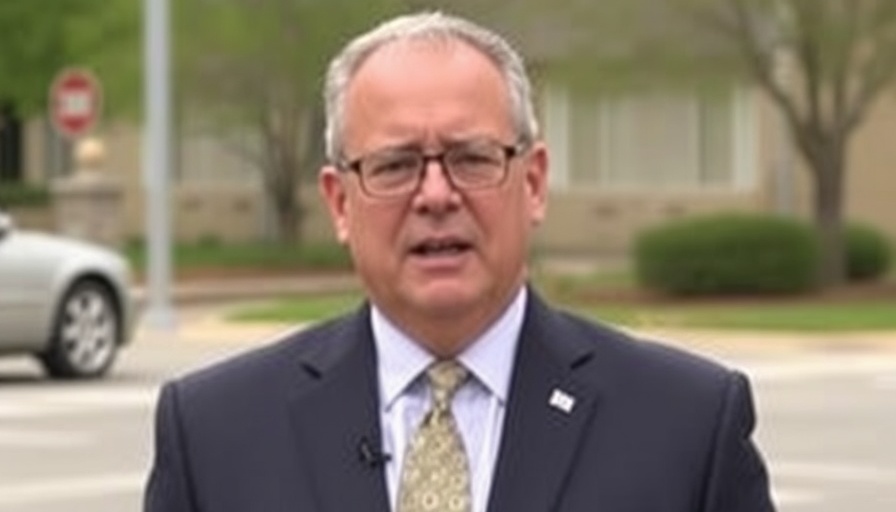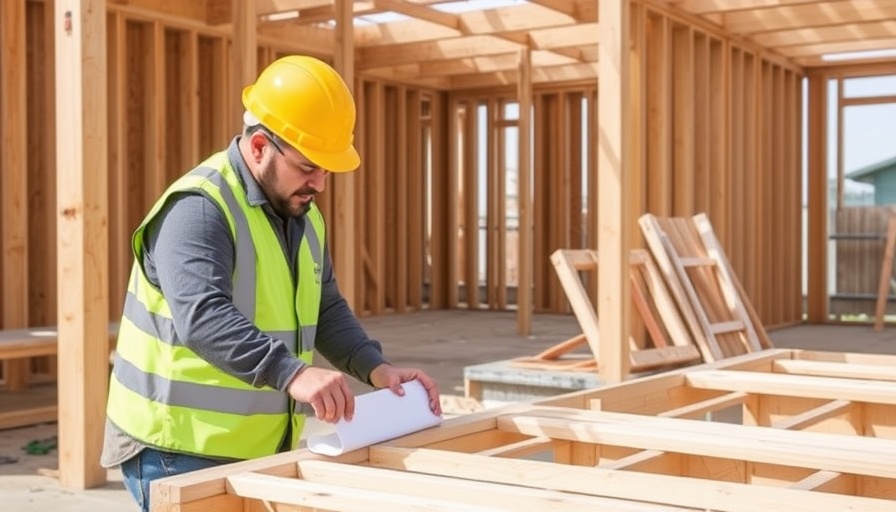
Understanding the Situation: Cudahy's Vice Mayor Under Fire
In recent days, the small Los Angeles suburb of Cudahy has found itself at the center of a heated debate following a social media video posted by vice mayor Cynthia Gonzalez. The video, which has since been taken down, led to considerable backlash as critics accused Gonzalez of inciting violence, particularly among local gangs, to counter federal immigration enforcement actions. As a community that thrives on connectivity and resilience, it’s essential to dissect the implications of Gonzalez's remarks in a broader context.
Cynthia Gonzalez Responds
Following the uproar, Gonzalez broke her silence through her attorney, Damian Martinez, asserting that her intentions were misconstrued. She reportedly urged her community to exercise their constitutional rights to free speech and assembly, directly referencing existing frustrations over ongoing ICE enforcement. Martinez emphasized that Gonzalez did not advocate for violence saying, “Any suggestion that she advocated for violence is categorically false and without merit.” This defense raises substantial questions about the line between civic engagement and incendiary rhetoric in the context of tense immigration policies.
The Role of Community in Current Immigration Debates
At its core, Gonzalez’s position highlights the ongoing struggle faced by immigrant communities, especially in cities like Cudahy that have seen a rising presence of ICE activities. As stakeholders grapple with the challenges posed by federal immigration laws, voices like Gonzalez’s can often resonate strongly with constituents. Many in the community feel that local government should take a stand against policies perceived as unjust. Thus, the vice mayor’s outreach serves as a barometer for assessing the community’s collective sentiment towards federal enforcement.
Illuminating the Divide
However, her specific mention of notorious gangs such as Florencia 13 raises concerns about the potential misunderstanding of her message. Florencia 13, known for their violent past, has deep roots in the community, and linking them to a call for civic action could potentially alienate citizens who desire accountability from their government without invoking criminal elements. As the debate unfolds, community leaders and members must navigate these intricate dynamics to foster discourse that promotes unity rather than division.
Civic Engagement: A Double-Edged Sword
Gonzalez's controversy illustrates a crucial aspect of civic engagement: the delicate balance between peaceful advocacy and inflammatory dialogue. Engaging residents in discussions about their rights and policies that potentially affect them is an essential element of democracy. Yet, invoking known gangs can muddle intentions and evoke fear among the very constituents she aims to protect. This situation must serve as a cautionary tale about the power of language and the ramifications it can carry.
The Future of Community Dialogues
Looking ahead, it's clear that civic dialogues in Cudahy and beyond cannot afford to lack clarity or empathy. Gonzalez's remarks underline a pivotal point that local leaders must address—how to actively involve communities in discussions around immigration while also respecting public safety and order. As community members express their concerns about ICE raids, there may be a need for town halls or community forums that provide spaces for peaceful conversation and collective action.
Takeaway: Building Bonds Through Dialogue
In the face of national debates about immigration, community leaders like Gonzalez play a vital role—not just as representatives, but as facilitators of constructive dialogue. Moving forward, it’s imperative to cultivate spaces where communities can share their stories, concerns, and aspirations peacefully to strengthen ties and foster cohesive neighborhoods. With active participation and open communication, citizens can wield their voices to enact positive change.
Engaging as a community to support one another during times of uncertainty is critical. As discussions around immigration continue to evolve, it’s essential for community members to remain informed and involved. To stay updated on local initiatives and communicate effectively for positive change, consider participating in community meetings and forums.
 Add Row
Add Row  Add
Add 



Write A Comment